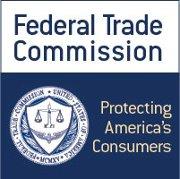
Phantom Debt Collectors Settle FTC Charges of Deceiving Consumers
A North Carolina debt collection operation, Lombardo, Daniels & Moss, and its principals, Dion Barron and Charles R. Montgomery III, will be banned from the debt collection business under settlements resolving Federal Trade Commission charges that they used false threats to get people to pay for debts they did not owe.
According to the FTC, the scheme used a variety of trade names that sounded like law firms to attempt to collect fake debts from consumers. The defendants claimed that consumers were delinquent on payday loans or other debts, and threatened them with arrest or other formal legal action if they did not pay.
In addition to banning the defendants from debt collection activities, the settlement orders prohibit them from buying or selling debt, and from making misrepresentations about any products or services. They are also prohibited from profiting from or failing to properly dispose of consumer information collected as part of the challenged practices.
The order against Montgomery and Lombardo, Daniels & Moss imposes a $2,722,452 judgment, of which they are jointly and severally liable with Barron for $1,635,803, which represents the amount of consumer harm they caused before Barron left Lombardo, Daniels & Moss. The order against Barron imposes a judgment of $1,814,045, of which he is jointly and severally liable for $1,635,803 with the other defendants. The judgments will be partially suspended when the defendants have surrendered certain assets. In each instance, the full judgment will become due immediately if the defendants are found to have misrepresented their financial condition.
The Commission vote approving the proposed stipulated final order against Barron was 2-0. The Commission vote approving the proposed stipulated final order against Montgomery and Lombardo, Daniels & Moss was 5-0. Both orders are subject to review by the U. S. District Court for the Western District of North Carolina, Charlotte Division.
NOTE: Stipulated final orders or injunctions have the force of law when approved and signed by the District Court judge.
